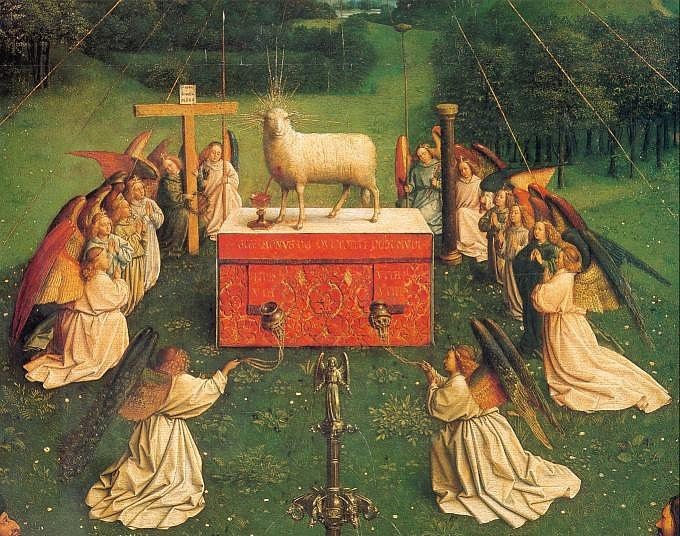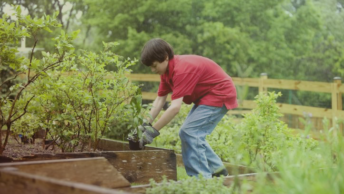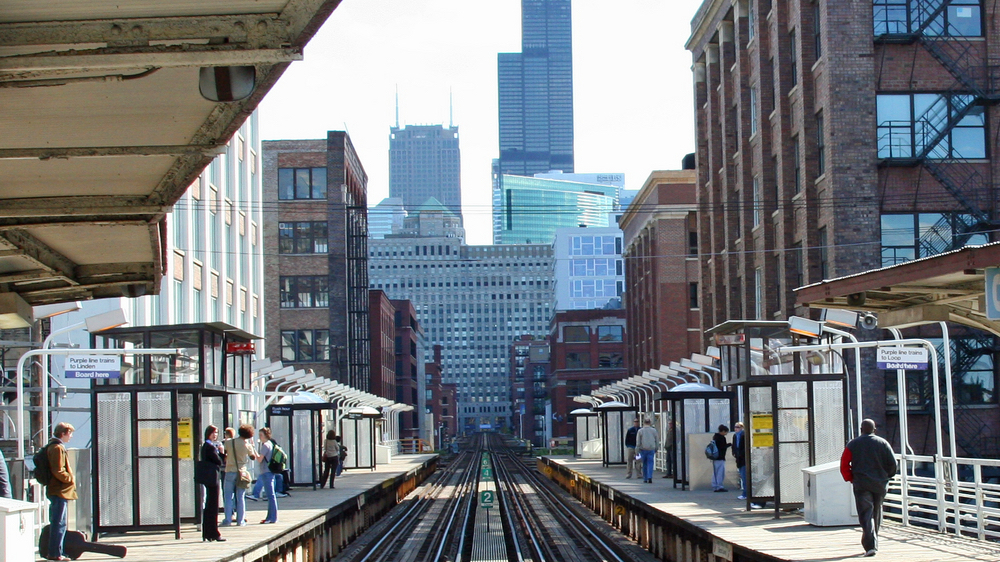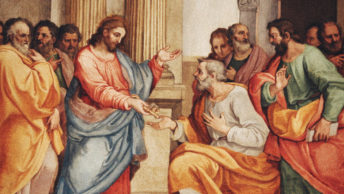On this 26th Sunday in Ordinary Time, we hear about the man with the two sons (Mt 21:28-32), one of whom who told his father he would work as his father had requested and then did not, the other having said “no” to his father and then changed his mind and did his father’s bidding. What changed that son’s mind? Was it a sense of shame? Was it a sense of guilt? I suspect it was the latter, his sense of guilt.
All of us have regrets, memories of unkind or hurtful or downright evil things we’ve done. All of us have feelings of guilt. We’d all like the chance to do certain things over again, to make things different, to right the wrongs we’ve done. The Persian writer Omar Khayyam once wrote: “The moving finger writes, and having writ moves on. Nor all you piety nor wit can lure it back to cancel half a line. Nor all your tears wash out one word of it.”
What, then, do we do with our awareness of guilt? The parable of Jesus just heard gives us a sense of direction. Guilt can, after all, be a good thing – it can move us in a constructive direction.
Not everyone agrees with that proposition. There are those in the world around us who maintain that guilt is a device used preachers to manipulate and control you, to get money out of you, to hold you in fear and to threaten you with hell. There are still others who say that there’s no such thing as sin; that it’s just a sickness they say; that it’s psychically pathological to even recall sin and guilt. Others, still, wallow in guilt and self-pity, using it as an excuse for drinking, or using drugs, or other sorts of compensatory behaviors to deaden a sense of guilt.
The truth is that guilt, remorse, and regret can be very powerful and potentially useful emotions. They can move us away from wasting our gifts, abusing other people, along with powerfully motivating us to make our lives and the lives of those around us much more happy and fulfilled.
Responsibility, the ability to respond, is directly related to guilt. While we all have a sense of guilt and regret over things we have done, some of us go one step further and begin to examine what we have not done. There are moments of kindness, tenderness, and compassion that I have not shared with people who have needed those things from me. I have not been as courageous as I could have been. I have shunned valor, missed opportunities to lead, passed by moments of truth, avoided conflicts that would have changed people for the better, and not done what God had given me the opportunity to do. I have been the older son, not the younger one depicted in that famous other parable of Jesus, namely the parable of the Prodigal Son.
Moreover some of us have blamed others and used the bad example of others as an excuse. I have appealed to the empty phrase: “Everybody’s doing it”, and even decreed certain things not to be sinful, things that God has clearly told us are truly sinful.
One of the best definitions of insanity I’ve ever heard goes like this: “To keep on doing the same things in the same way, while expecting a different result each time,” Truly, that is a crazy way to live and act. Yet I’ve done it. The only sensible thing to do with our regrets, our remorse, and our guilt is to change the way we act. That’s the simple message of Jesus’ parable. It is insanity to declare the reality of sin to be something else. To do that is to be out of touch with reality. It is equal1y insane to regret what we’ve done or have not done and yet keep on doing what we’re doing or not doing. The only sane and sensible thing to do with our regrets, our remorse, and our guilt is to face what we have done or not done and then embark on a positive course of action, to make active, decisive and positive changes in the way we behave.
Because of his sense of guilt the second son faced reality and then went out to accomplish his father’s task. He experienced guilt and then took action. “Regret” was something he felt deep down within his heart and soul. “Went” is something he did with the soles of his feet.
You and I are loved sinners. We are not saints, nor are we condemned to hell. We are “being redeemed sinners,” those beloved by God for whom He sent His only-begotten Son, not to condemn but to save. It’s only when we admit to God, to ourselves, and to another human being the exact nature of our wrongs that we can begin to get in touch with reality and move out of the insanity of our denial. Once freed from denial we can live and move and have out being in the freedom of the children of God. And that freedom is precisely the freedom to do what is right, what is decent and what is good.
Doing what is right, decent, and good is the only sanity that gives us the freedom for which our hearts hunger and thirst and fills us with the food and nourishment and strength that we need for that freedom. Jesus is about to come down to earth once again right here on this altar to give you and to give me the Bread of Life, that which can make us healthy and whole, that which can bring sanity and the power we need to accomplish His work here on earth as it is in heaven.
The simplest interpretation of the teachings of Jesus speaks to my heart telling me that through God’s forgiveness, in His eyes I am no longer a sinner. In the depths of my conscience I am no longer guilty. That is what we all want and Jesus tells us that is true. God Himself is the Good. He is infinitely free, a freedom beyond anything we can conceive. He is utterly free, free of all ties, far beyond what we can conceive as good. God lives in the freedom of love and as such can proclaim to you and to me “Your sin no longer exists!” But I would never hear those words unless I repented and admitted my guilt. This is the great freedom we experience when we receive the Sacrament of Reconciliation.








